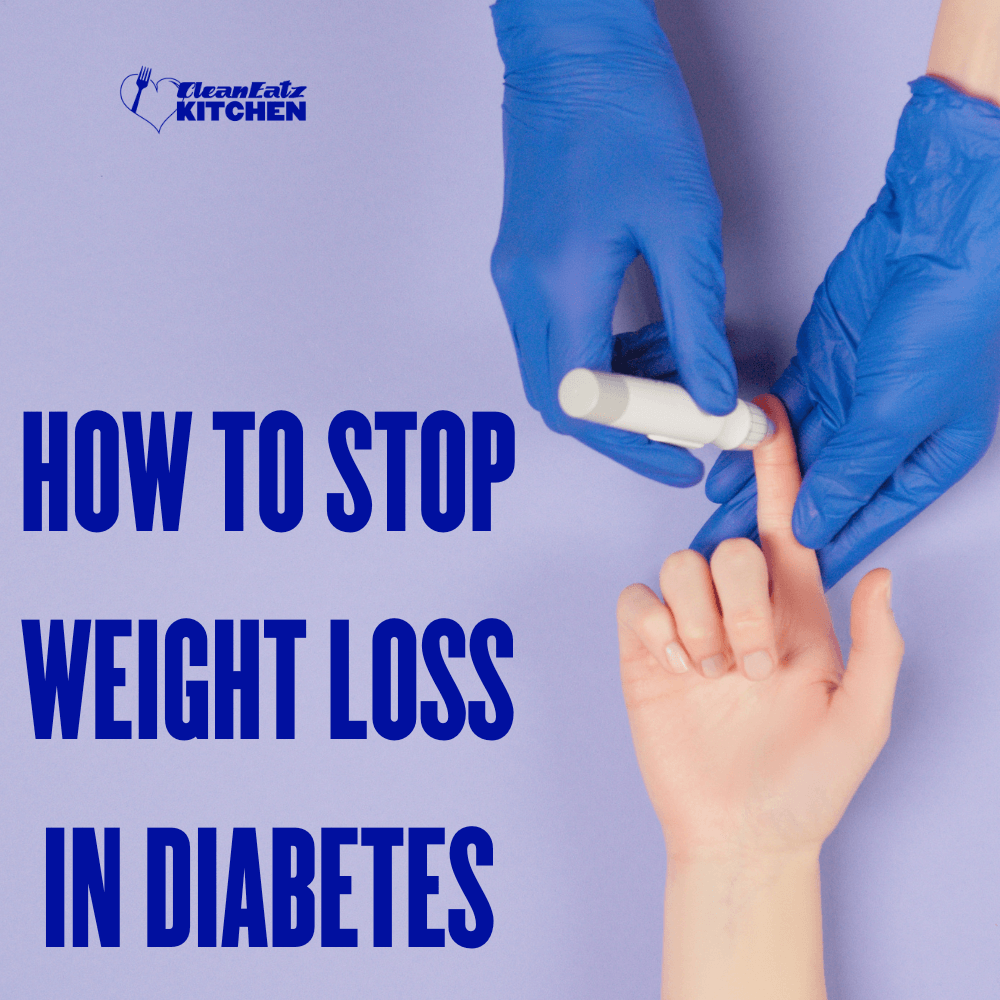
How To Stop Weight Loss In Diabetes?
Jason Nista
Weight Loss
|
Healthy Lifestyle
6 minute read
Table of Contents
Diabetics can benefit from a well-thought-out plan to lose weight with a weight loss diet food delivery, but rapid and unexplained weight loss could be risky. If you’re trying to get better, you might ask, how to stop weight loss in diabetes?
In this article, we are going to discuss the following
What causes sudden weight loss in diabetes?
What happens if diabetics lose a lot of weight?
How much weight loss is a concern?
How to stop weight loss in diabetes?
Diabetes and Unexplained Weight Loss
Unexplained weight loss is defined as a reduction in body mass that occurs apart from any intentional efforts to reduce food intake or increase physical activity. This condition is oftentimes experienced by people with diabetes.
Carbohydrates are broken down by the body into glucose and absorbed into the bloodstream after consumption. When your blood sugar rises, your pancreas responds by releasing insulin, which facilitates the transport of glucose from the blood into the cells, where it will be utilized as energy.
What Causes Sudden Weight Loss In Diabetes?
Some people with diabetes mellitus may not be able to use glucose for energy because their bodies either do not produce enough insulin or do not use it effectively. When this happens, your body starts tapping into reserves like body fats and muscle mass. The metabolic process itself is called ketosis. Hence, this results in the loss of muscle, fat, and body weight.
One of the most noticeable symptoms of diabetes is an increased need to urinate. Diabetes is characterized by high blood levels of glucose. In order to process and absorb all of that extra glucose, your kidneys have to work overtime.
When the kidneys are overworked, the body's surplus glucose is released into the urine, taking water and electrolytes. Typically, this causes a person to feel thirsty. As you increase your fluid intake to relieve your thirst, you will urinate more frequently. This frequent urination will lead to water weight loss in your body and dehydration.
What Happens If Diabetics Lose A Lot Of Weight?
Fatigue
As you lose a lot of weight, you’ll begin to feel more fatigued since you won’t have enough energy left as your body begins to lose muscle and fat mass. Loss of muscle mass will also weaken your body overall, so you’ll have difficulty doing tasks that require more energy and experience difficulty catching your breath.
Frequent urination
The inability of your body to absorb glucose properly will also cause you to urinate frequently, which will lead to dehydration.
Irritability
As the protein and fat degradation worsen, you’ll also feel more irritable, have difficulty concentrating doing your tasks, have frequent headaches, and lose your hair. You’ll also have digestive issues such as constipation and nausea from the weight loss.
Ketoacidosis
In some cases, acute complications can lead to diabetic ketoacidosis. This is a dangerous condition that needs immediate medical attention. It can ultimately lead to microvascular and macrovascular disease, and patients will be more at risk for autoimmune disease and psychosocial issues.
How Much Weight Loss Is A Concern?
Any loss of more than 5% of total body weight, or more than 10 pounds (4.5 kg), in 6-12 months, or even less, should be cause for concern. This may indicate that you have diabetes that has not yet been identified or that your current treatment is not doing its job.
When this occurs, it's critical to see a doctor right away so you can figure out what's causing the weight loss and stop it from getting worse.
How To Stop Weight Loss In Diabetes
The first thing you should do is to make sure you are getting the proper medication and dose for your diabetes from your doctor.
Blood glucose level monitoring
You should monitor your blood glucose level very closely and alter the dosage of insulin according to the reading and what you eat. By doing so, you can detect if it’s too high - meaning you’re not absorbing glucose properly, and this could possibly lead to weight loss. By closely examining your blood glucose level and its fluctuations, your doctor can give you a proper dose.
Ketone level monitoring
Another factor you should monitor is your ketone levels. As your body starts to undergo ketosis, it will create ketones. This means it’s starting to burn your fat and protein for energy instead of utilizing glucose. Again, this could cause weight loss and loss of muscle mass, so you should adjust the dose of your insulin accordingly after consulting your doctor.
Watch your diet
The next step is developing a strategy to either regain your lost weight or keep it steady. Because you desire a large caloric intake without causing a blood sugar increase, you'll need to exercise extreme caution. You can do this by putting emphasis on protein and fat and controlling your carb intake.
Recover your muscles by ingesting high-protein foods, which could be plant or animal based. Examples are chicken, eggs, meat, seeds, or soy products. The best way to consume these protein-based foods is by consuming them shortly before you sleep, as it improves the muscle protein synthesis rate.
Increase your caloric intake by also including more healthy fats in your diet. Choose healthy fats and oils that contain little to no saturated fats, such as avocados, nuts, olive oil, and seeds.
Take Away
Patients with diabetes may experience unexplained weight loss because their bodies will no longer be able to utilize glucose for energy and will instead resort to consuming stored fat and muscle. However, dehydration from excessive urination is also a possible cause. Diabetic individuals who experience sudden and unexpected weight loss should consider adjusting their insulin dosage and adding more protein and healthy fats to their diets, and possibly consider a keto meal delivery.
In conclusion, to stop weight loss in diabetes, it is important to closely monitor blood glucose and ketone levels and adjust insulin dosage accordingly. Consulting a doctor is crucial in determining the proper medication and dose. Additionally, focusing on a diet that includes high-protein foods and healthy fats can help regain lost weight and maintain stability. Diabetic individuals should be cautious about carb intake and consider a prepared Keto meal delivery plan as an option. By addressing these factors, individuals can effectively manage weight loss in diabetes and improve their overall health.
Related Articles
Is Corn Good For Weight Loss?
5 minute read
Is Ceviche Good for Weight Loss?
9 minute read



